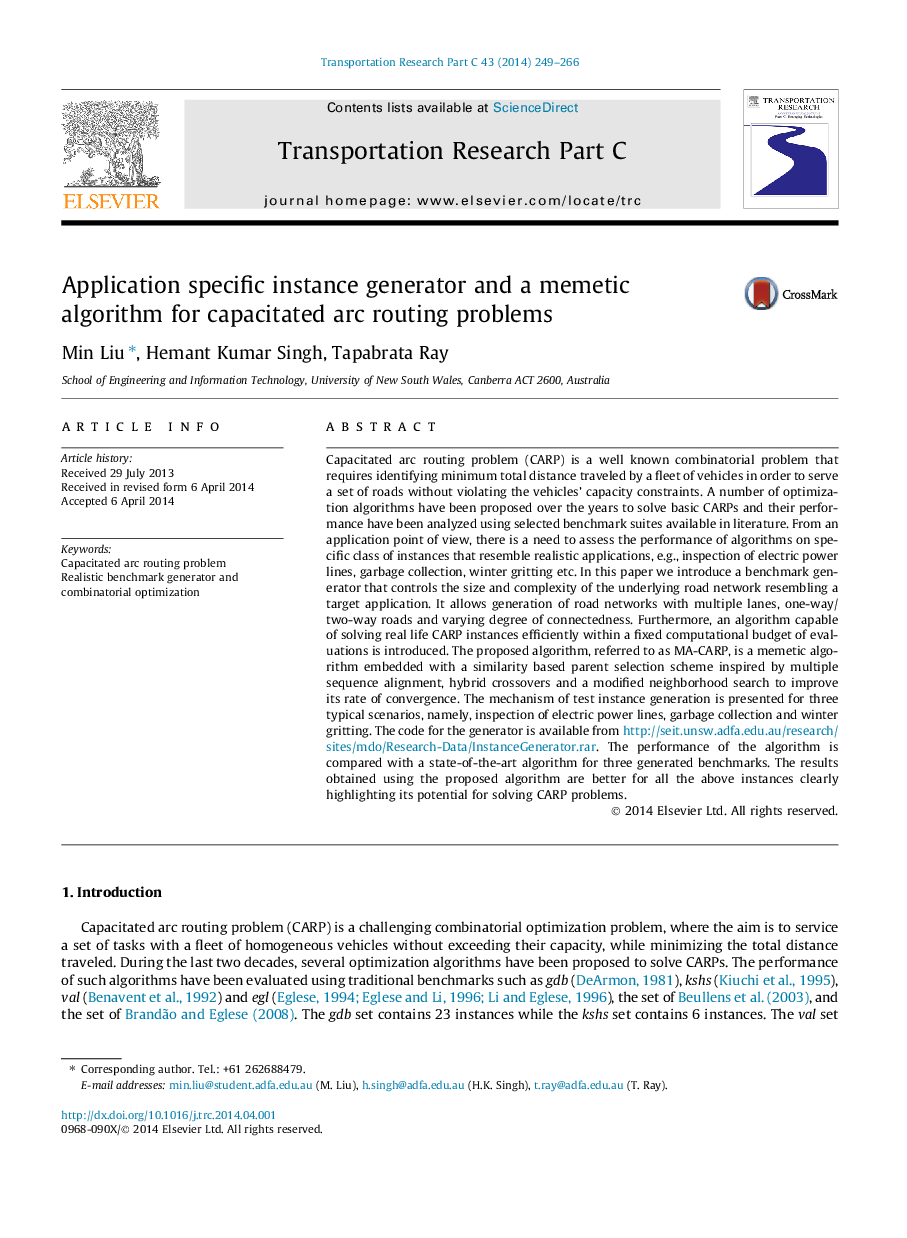| Article ID | Journal | Published Year | Pages | File Type |
|---|---|---|---|---|
| 525021 | Transportation Research Part C: Emerging Technologies | 2014 | 18 Pages |
•We introduce a method to generate application specific extended CARP instances.•The generator can control the size and complexity of realistic road networks.•A new memetic algorithm to solve CARPs is proposed.•Three CARP benchmarks are created using the proposed generator.•The performance of the proposed algorithm is reported on three CARP benchmarks.
Capacitated arc routing problem (CARP) is a well known combinatorial problem that requires identifying minimum total distance traveled by a fleet of vehicles in order to serve a set of roads without violating the vehicles’ capacity constraints. A number of optimization algorithms have been proposed over the years to solve basic CARPs and their performance have been analyzed using selected benchmark suites available in literature. From an application point of view, there is a need to assess the performance of algorithms on specific class of instances that resemble realistic applications, e.g., inspection of electric power lines, garbage collection, winter gritting etc. In this paper we introduce a benchmark generator that controls the size and complexity of the underlying road network resembling a target application. It allows generation of road networks with multiple lanes, one-way/two-way roads and varying degree of connectedness. Furthermore, an algorithm capable of solving real life CARP instances efficiently within a fixed computational budget of evaluations is introduced. The proposed algorithm, referred to as MA-CARP, is a memetic algorithm embedded with a similarity based parent selection scheme inspired by multiple sequence alignment, hybrid crossovers and a modified neighborhood search to improve its rate of convergence. The mechanism of test instance generation is presented for three typical scenarios, namely, inspection of electric power lines, garbage collection and winter gritting. The code for the generator is available from http://seit.unsw.adfa.edu.au/research/sites/mdo/Research-Data/InstanceGenerator.rar. The performance of the algorithm is compared with a state-of-the-art algorithm for three generated benchmarks. The results obtained using the proposed algorithm are better for all the above instances clearly highlighting its potential for solving CARP problems.
